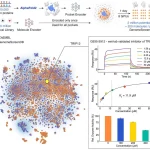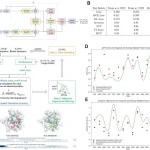The COVID-19 pandemic has undoubtedly caused a lasting impact on the world. Millions of people worldwide are still struggling with the aftermath of COVID-19, which is increasingly referred to as Long COVID. Healthcare professionals and scientists across the globe are increasingly worried about this complex syndrome. The scale and intricacy of this post-viral condition have been exposed in a path-breaking study published recently in The Lancet. By studying updated research materials, researchers seek to extensively comprehend Long COVID’s indicators, its causes, and even the challenges it continues to face.
What is Long COVID?
Long COVID, also known as Post-COVID Syndrome, refers to a set of symptoms that persist or arise following an initial recovery from COVID-19 and last for more than one month. It’s a very complicated disorder that could attack different organ systems, causing numerous symptoms and in different degrees.
The Prevalence of Long COVID
The precise prevalence of Long Covid is hard to determine due to variable definitions, methodologies used in studies, and data collection techniques. Nevertheless, studies indicate that a significant proportion of people who have contracted corona virus experience persistent illness. The risk factors associated with developing Long Covid include how severe an individual’s initial infection was, their age, any underlying health issues they had, and whether they had been vaccinated or not.
The Impact of Long COVID
Long COVID is a term used to describe the symptoms that last for weeks or months after people have recovered from the acute phase of the illness caused by SARS-CoV-2. Many individuals have experienced significant impacts due to long COVID. The illnesses can vary from moderate to completely disabling, greatly affecting daily activities, work, and general well-being.
Symptoms usually include:
- Tiredness
- Brain fog (difficulty thinking)
- Breathlessness
- Chest pain
- Heart palpitations
- Sleep disturbance
- Anxiety and depression
- Joint pain
- Hair loss
It should be noted that this list is not exhaustive; different individuals may experience a combination of these symptoms in varying degrees.
Understanding Long COVID Mechanisms
Scientists are actively studying the causes of Long covid. While the exact mechanisms are still being elucidated, several potential factors have been identified:
- Persistent viral presence: In some instances, residual viruses can stay in the body and cause subsequent immune responses.
- Immunologic dysregulation: Excessive activity or malfunctions by the immune system often result in swelling and tissue destruction.
- Organ damage: Among these are lung, brain, and heart injuries since they can be directly damaged by COVID-19, leading to long-term issues.
- Blood clots: Small blood clots can form throughout the body, affecting different organs and systems.
Challenges in Diagnosis and Treatment
It’s hard to diagnose Long COVID as there is no single definite test. For this, health professionals rely on comprehensive patient histories, symptom evaluations as well as other potential causes’ exclusion methods.
Currently, there is no specific cure for Long COVID. Rather, treatment focuses on symptom management and general well-being enhancement. This might entail multi-modal approaches such as:
- Rehabilitation: Physical, occupational, and cognitive therapies can help individuals regain strength, improve function, and manage fatigue.
- Medication: Some medications that deal with specific symptoms might be prescribed, such as pain relievers, antidepressants, or respiratory medications.
- Lifestyle modifications: Keeping fit through regular exercises, anger management, and eating well-balanced meals can help one keep in good health.
The Role of Research
Ongoing research must be conducted to understand the intricacies Long COVID and develop effective treatments. Various aspects of the condition are being investigated by scientists, including:
- Identification of biomarkers for diagnosis and monitoring
- Targeted therapy development based on the mechanism of disease
- Long-term consequences evaluation for Long COVID
- Examining the effects of Long COVID on specific populations, e.g., children and elderly people.
Conclusion
Long COVID is a complicated and frequently incapacitating ailment that still affects millions globally. Investigations are still ongoing to unravel the etiology of the condition and develop efficient therapies, nevertheless backing and creating consciousness remains crucial for those who are affected by its implications. Through sharing experiences, campaigning for research, and working together, we can markedly change Long COVID victims’ lives.
Let’s create a supportive and informative space for everyone affected by Long COVID. Share your thoughts, experiences, and questions below!
Article Source: Reference Paper | Reference Article
FAQs
Some common symptoms of LongCOVID include fatigue, cognitive impairment, breathlessness, sternum pain, heart pounding, sleep disturbances, stress disorder, depression, joint aches, and hair fall. However, it is essential to note that this does not cover all possible symptoms, as people may get a combination of different symptoms.
Its exact cause remains elusive. Possible factors include sustained viral presence, immune dysfunction, organ malfunctioning, and thrombosis.
There is no definitive test. Diagnosis typically involves taking a detailed history or story about someone’s health or life experiences, paying attention to the number and type of events that could be significant enough to cause hurt or danger to one’s life or health system functioning.
Presently, there is no known cure for long-term covid. Management of symptoms and improvement in general well-being form the basis for treatment. It may involve treatments such as physiotherapy, drug administration, and lifestyle changes.
It may last for different spans of time, depending on the individuals involved. Some cases end after a few weeks, while others persist indefinitely or reoccur frequently.
Follow Us!
Learn More:
Anchal is a consulting scientific writing intern at CBIRT with a passion for bioinformatics and its miracles. She is pursuing an MTech in Bioinformatics from Delhi Technological University, Delhi. Through engaging prose, she invites readers to explore the captivating world of bioinformatics, showcasing its groundbreaking contributions to understanding the mysteries of life. Besides science, she enjoys reading and painting.
















